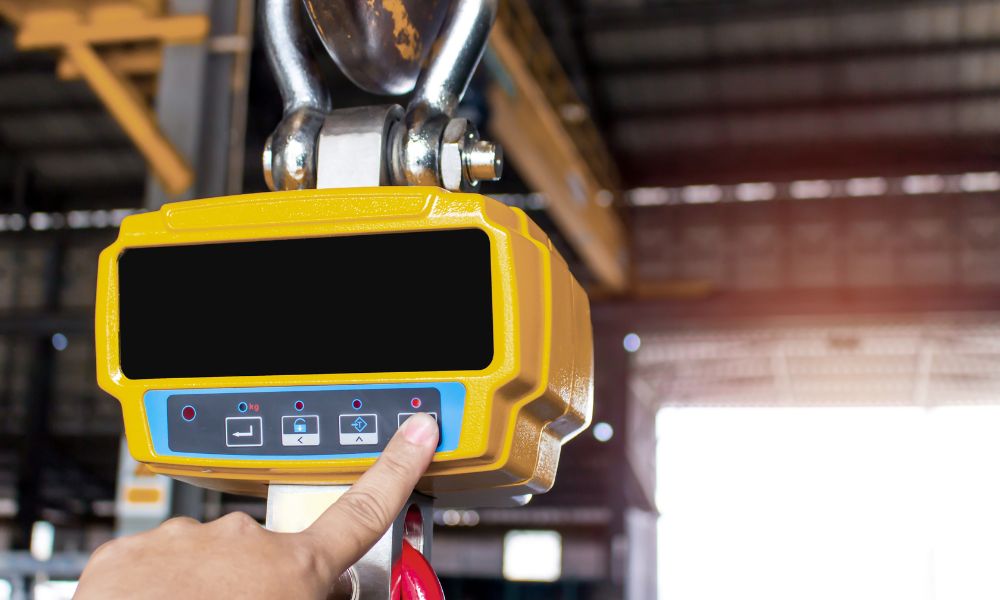In industrial weighing and measurement, precision is crucial to ensuring quality results and enhancing business operations. Two pivotal instruments in this arena are crane scales and load cells. Though they might seem interchangeable, their functionalities, applications, and mechanisms aren’t the same.
The difference between crane scales and load cells highlights the importance of selecting the right tool for the right job in the vast field of industrial operations. With a deeper understanding of these instruments, you can advance your immediate business goals and pave the way for innovation and excellence in industrial measurement and weighing tasks.
What Are Crane Scales?
Crane scales are robust devices designed for heavy-duty weighing tasks. They typically attach to a crane’s hoisting mechanism, allowing for the direct measurement of suspended loads’ weights. This direct method of weight assessment is not only convenient. It’s also highly efficient for operational workflows in settings like shipping yards, heavy machinery manufacturing, and construction sites.
The Role of Load Cells
Load cells are more versatile in their application. These devices convert force into electrical signals, serving as the heart of many weighing systems. Load cells are essential in a variety of settings, from floor scales and bench scales to specialized scientific measurement equipment. Their adaptability stems from their ability to function under a range of conditions and configurations, making them a staple in industrial and laboratory environments.
Durability and Load Capacity
When it comes to durability and load capacity, industrial crane scales can withstand harsh industrial environments and handle extremely heavy loads. Some may even reach the capacity to measure several tons. Load cells are also available in a wide range of capacities suitable for different purposes, from light commercial to heavy industrial uses.
Key Differences in Functionality
Some of the main differences between crane scales and load cells come from their operational purposes. Crane scales excel in environments where quick, dynamic weighing is necessary. Their design allows for real-time weight monitoring during the loading, unloading, or transferring of goods, which can significantly enhance operational speed and safety.
Load cells are popular for their precision and flexibility, serving as critical components in various types of weighing systems. This adaptability makes them essential for precision-engineered processes, such as batch weighing, inventory management, and control systems in manufacturing. Both offer high levels of precision and accuracy, but the choice between the two may depend on the measurement task.
Crane scales and load cells play indispensable roles in measurement. Understanding their differences is key to selecting the right tool for your needs, whether managing a construction site, designing a complex weighing system, or conducting precise scientific research.
Call us today to learn more about crane scales, load cells, and their applications in industrial settings. We have an extensive catalog of weighing devices that’ll help your business reach new operational levels.
